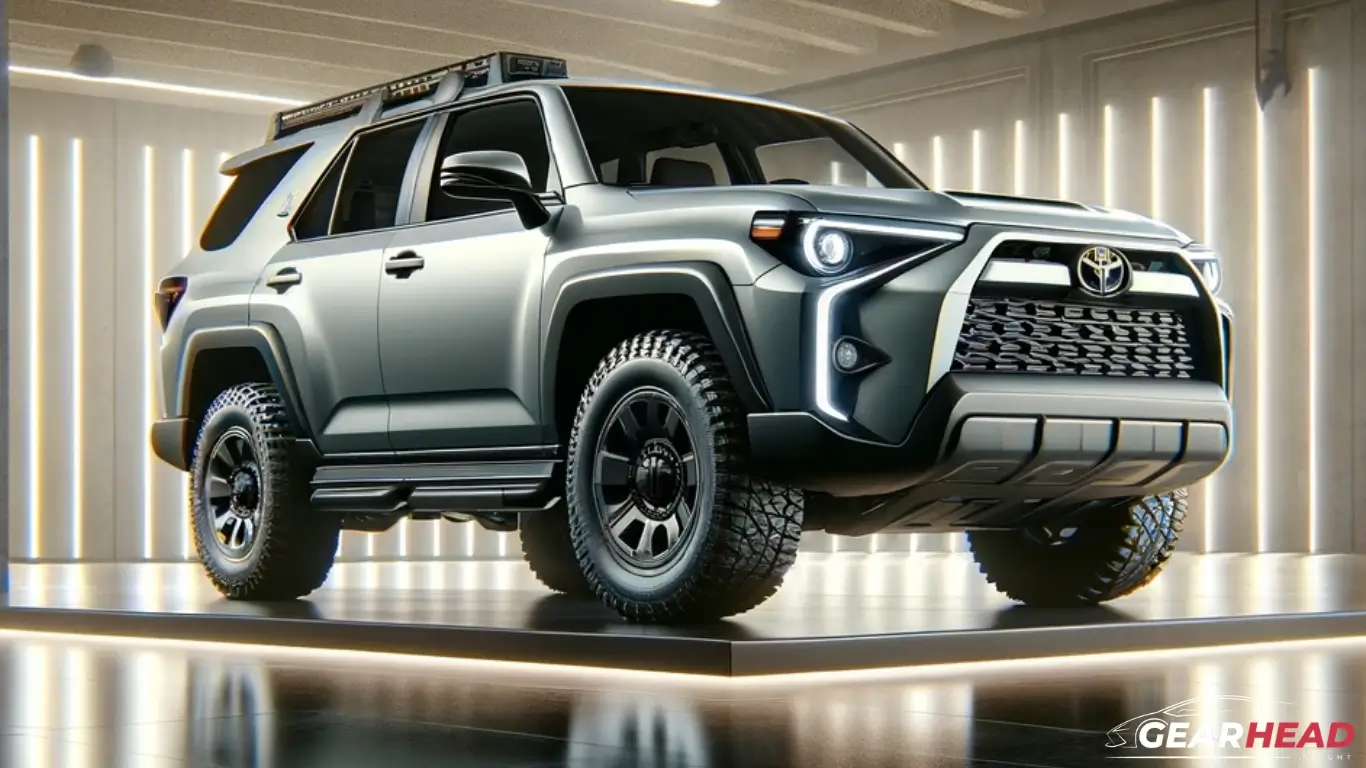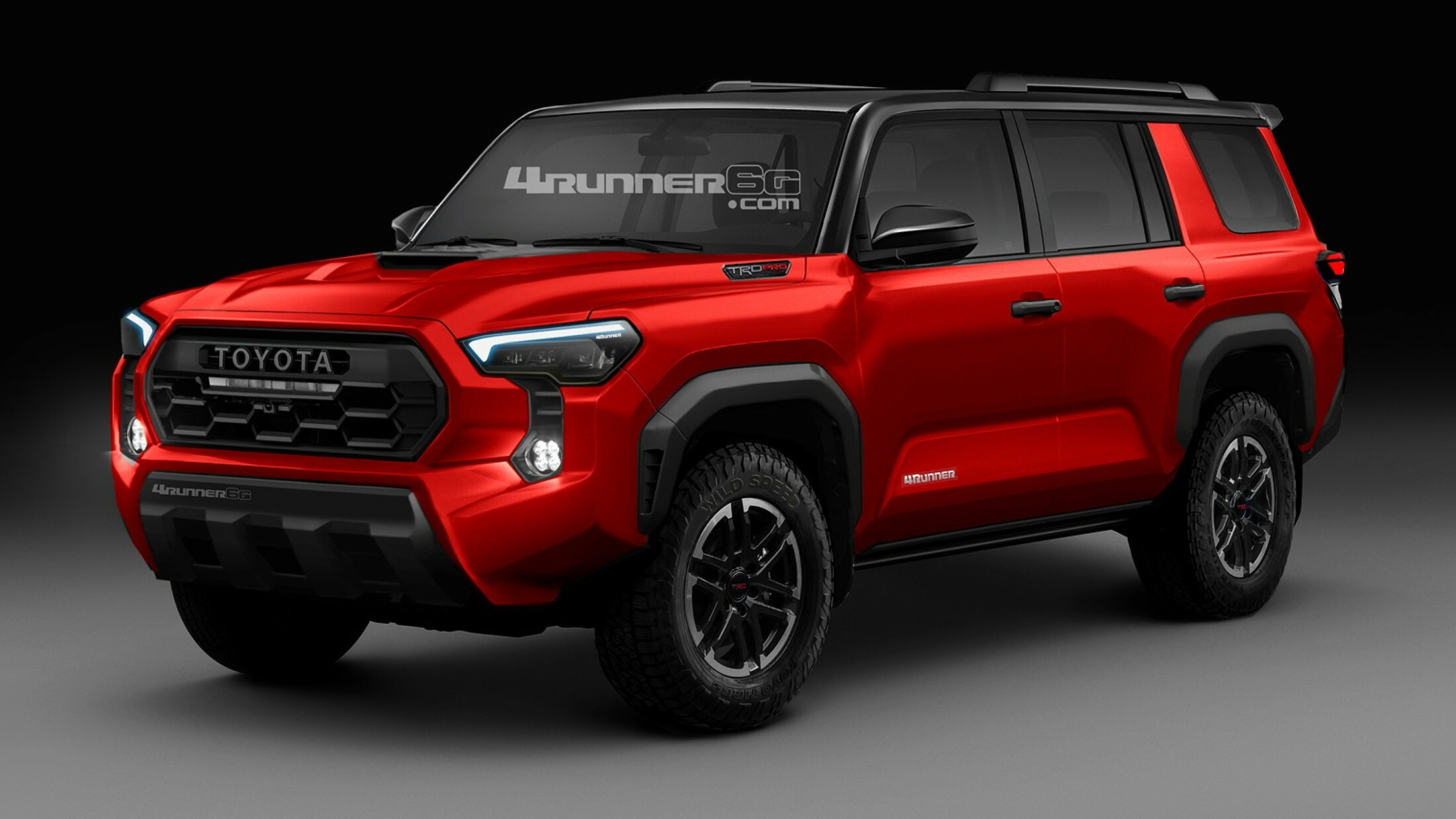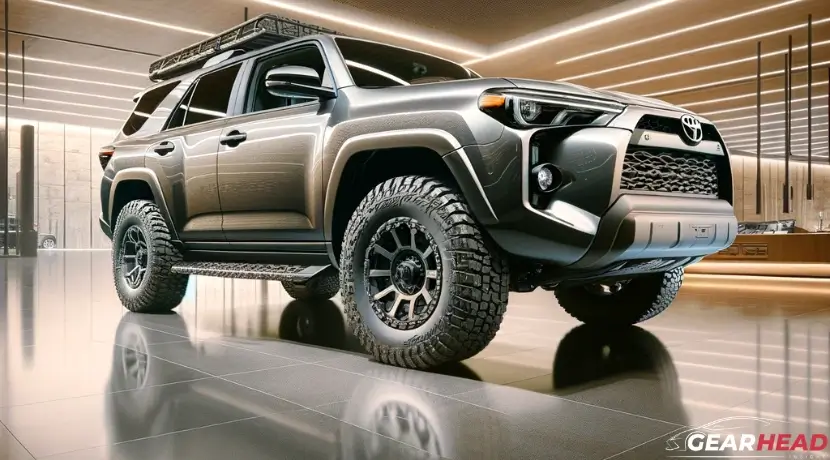The Toyota 4Runner 2025: A Glimpse into the Future of Off-Road Efficiency
Related Articles: The Toyota 4Runner 2025: A Glimpse into the Future of Off-Road Efficiency
Introduction
With enthusiasm, let’s navigate through the intriguing topic related to The Toyota 4Runner 2025: A Glimpse into the Future of Off-Road Efficiency. Let’s weave interesting information and offer fresh perspectives to the readers.
Table of Content
The Toyota 4Runner 2025: A Glimpse into the Future of Off-Road Efficiency

The Toyota 4Runner, a stalwart in the off-road SUV segment, is poised for a significant evolution with the introduction of a hybrid powertrain in the 2025 model year. This development marks a pivotal moment, not only for the 4Runner but for the entire SUV market, as it promises to bridge the gap between rugged capability and fuel efficiency, a combination long sought after by adventure enthusiasts.
While specific details about the 2025 4Runner’s hybrid system remain under wraps, industry experts and enthusiasts anticipate a significant improvement in fuel economy compared to its gasoline-only predecessors. This advancement is expected to stem from the synergy between a potent internal combustion engine and a powerful electric motor, allowing for a more efficient use of energy and reduced fuel consumption.
A Fusion of Power and Efficiency:
The 4Runner’s hybrid system is likely to be a sophisticated blend of established Toyota technologies, drawing from the company’s extensive experience in hybrid vehicle development. The core of this system will likely be a proven gasoline engine, potentially paired with a robust electric motor, drawing power from a high-capacity battery pack. This combination promises to deliver an impressive power output, enabling the 4Runner to retain its renowned off-road prowess while simultaneously achieving significant fuel economy gains.
The Benefits of Hybrid Technology:
The adoption of hybrid technology for the 2025 4Runner holds a multitude of benefits, extending beyond improved fuel economy. The integration of an electric motor allows for a smoother and more responsive driving experience, particularly at low speeds. Additionally, the regenerative braking system, a hallmark of hybrid vehicles, captures energy during deceleration, further enhancing fuel efficiency and reducing reliance on the gasoline engine.
Beyond the Numbers: A Deeper Impact:
The 2025 4Runner’s improved fuel economy translates to tangible benefits for owners. Reduced fuel consumption translates to lower operating costs, allowing for more adventures without breaking the bank. Moreover, the decreased reliance on fossil fuels contributes to a cleaner environment, aligning with growing concerns about climate change and sustainability.
Addressing Common Concerns:
While the prospect of a hybrid 4Runner is met with enthusiasm, some questions linger. Concerns about the impact of hybrid technology on the 4Runner’s renowned off-road capabilities are understandable. However, Toyota’s commitment to maintaining the 4Runner’s rugged character suggests that the hybrid system will be designed to complement, not compromise, its off-road prowess.
FAQs about the 2025 Toyota 4Runner Hybrid:
Q: Will the hybrid system affect the 4Runner’s off-road capabilities?
A: Toyota is committed to maintaining the 4Runner’s legendary off-road capabilities. The hybrid system is expected to enhance, not hinder, its performance, offering additional torque and improved traction in challenging terrain.
Q: What kind of fuel economy can I expect from the 2025 4Runner Hybrid?
A: While official figures are yet to be released, industry experts anticipate a significant improvement in fuel economy compared to the current gasoline-only models. This could translate to a substantial reduction in fuel consumption and operating costs.
Q: Will the hybrid system impact the 4Runner’s towing capacity?
A: The hybrid system is likely to enhance the 4Runner’s towing capacity, offering additional power and torque for heavier loads.
Q: What about the battery range and charging time?
A: The 2025 4Runner’s battery pack will likely be designed for optimal range and quick charging times, ensuring minimal inconvenience for owners.
Tips for Maximizing Fuel Efficiency:
- Adopt Eco-Driving Habits: Employing fuel-efficient driving techniques, such as smooth acceleration and deceleration, can further enhance fuel economy.
- Regular Maintenance: Consistent maintenance, including tire pressure checks and oil changes, helps optimize engine performance and fuel efficiency.
- Utilize Regenerative Braking: The hybrid system’s regenerative braking system captures energy during deceleration, maximizing fuel efficiency.
- Minimize Idle Time: Avoid unnecessary idling, as it consumes fuel without providing any benefit.
Conclusion:
The 2025 Toyota 4Runner Hybrid promises to be a game-changer, offering a compelling blend of off-road capability and fuel efficiency. This advancement not only addresses growing concerns about environmental impact but also opens up new possibilities for adventure enthusiasts, allowing them to explore the great outdoors with greater responsibility and reduced operating costs. As the automotive industry continues its journey toward electrification, the 2025 4Runner Hybrid stands as a testament to Toyota’s commitment to innovation and sustainability, paving the way for a future where rugged capability and fuel efficiency go hand in hand.








Closure
Thus, we hope this article has provided valuable insights into The Toyota 4Runner 2025: A Glimpse into the Future of Off-Road Efficiency. We thank you for taking the time to read this article. See you in our next article!